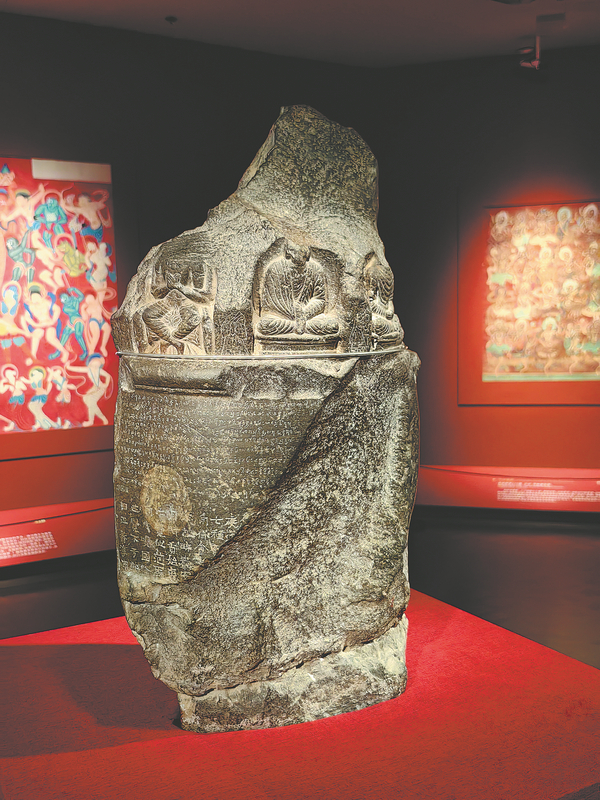Technology shows Mogao Caves in a new light

A stone stupa, with inscriptions of the Buddhist sutra in Chinese and ancient Indian writing, built in the Northern Liang period (397-460). [Photo by Gao Erqiang for China Daily]
One of the exhibits is the Shengli Stele, a stone with an inscription recording the beginning of the construction of the grottoes.
The text on the stone reads that in 366, a virtuous monk named Lezun (or Yuezun) "arrived at the mountain and suddenly saw the burst of golden lights with the image of thousands of Buddha inside".Inspired by this, he constructed the first cave on the cliff. Later, Monk Faliang built a second cave beside Lezun's.
From then, new caves were dug and temples were built with statues carved and frescoes painted. The craftsmen drew inspiration from sutra classics and secular life, creating a diverse collection, from legendary immortals flying midair in dance poses to the parade of powerful patrons and life scenes of prestigious families.





 Print
Print Mail
Mail
